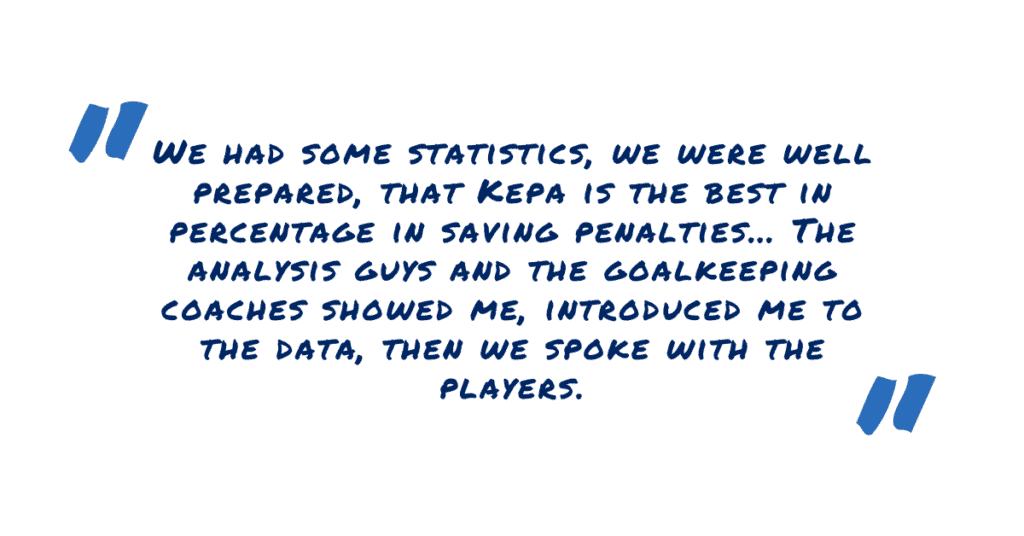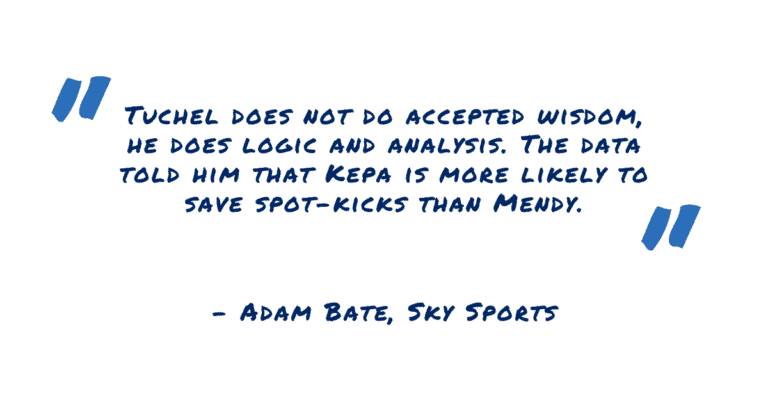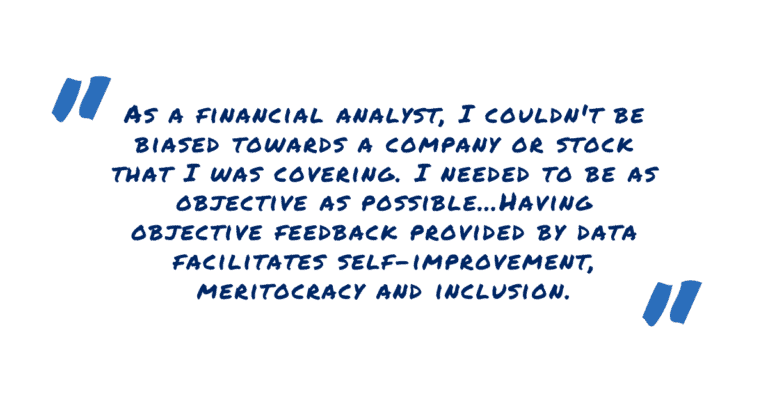An increasing hallmark of elite football in this Age of Performance Intelligence is how much people are working to remove bias in their decision-making and replace it with objective feedback. Are football’s veteran coaches and players trying to replace their own expertise and instinct? Absolutely not. They’re strengthening both with data – and getting powerful results. Let’s look at several recent stories highlighting this emerging – and accelerating – phenomenon.
Data Strengthens Instinct for When It’s Needed Most
Let’s start with Chelsea’s win against Villarreal in the UEFA Super Cup in a penalty shootout. With the score at 1-1, Chelsea substituted in Kepa Arrizabalaga for first-choice goalkeeper Edouard Mendy 119 minutes into the game because manager Thomas Tuchel had the data to know Kepa’s record was stronger. It might have looked last minute, but according to Tuchel, Chelsea made this decision back in February – months before they ever walked onto the pitch at Belfast last week:

Chelsea are no strangers to performance intelligence; they knew they had to remove bias. But this example proves the power of fusing objectivity and expertise: Tuchel had the objectivity to know Kepa was the superior goalkeeper; he had the expertise to know when and how to make the switch to reap the benefit and get the players’ buy-in. Data helped everyone exercise their strengths in the right way to win.

Objective Data Can Help Clubs Find Untapped Value Hiding in Plain Sight
The trend to remove bias is happening off the pitch, too. Last month, soccer data analysis business Soccerment released a report identifying Europe’s most undervalued soccer players. (Spoiler alert: they identify Marten De Roon, Fabián Ruizand Nayef Aguerd.)
How is such a report even possible? Data. Mountains of it. But as Soccerment founder and former financial analyst Aldo Comi says, “When you have the data, it’s not enough. You need to have the expertise and the tools to be able to extract the valuable and actionable information from the data.”
He’s spot on. There are players who are completely under-valued today because our industry hasn’t yet completely mastered how to turn colossal piles of data into intelligence. But more and more teams are applying a Performance Intelligence mindset to do that — remove bias and get objective decision-making. Here’s Comi borrowing from his finance background to make the point:

Global Business Leaders Don’t Make Massively Expensive Decisions Without Rock-Solid Evidence. Football’s Decision-Makers Shouldn’t Either
Lastly, I want to look at the gut reactions of tech founder Omer Atakoglu on his first 100 days at Altinordu FK, where he’s leading a strategic initiative to unlock Turkey’s elite football player potential. Coming from the tech and financial sector, he calls football “still a small industry” (!) but comments that “transfer decisions are becoming fact-based rather than opinions.”
Absolutely they are. Like Soccerment’s Comi, Atakoglu draws the parallel to finance: “I cannot imagine a CEO that rationalizes his $50 million decision based on just scouts and trainers’ opinions.”
The day is gone when teams will spend those sums to get players “on a hunch,” without removing bias. And smart clubs will want people who can help them sift through their mountains of data to do that. (Case in point: Arsenal recently appointed its first-ever Football Methodology Analyst in a move toward objectivity around their methodology.)
They’ll also want something more. We’ve seen the market ask for help to remove bias and bring in objectivity when it comes to discovering the root causes of injuries and the drivers of performance; in creating high production development pathways; and in supporting retain-release-recruitment decisions. The need is continuing to grow, not only for strategic intelligence, but also for daily intelligence. We’re excited to be working on some transformational capabilities along that frontier. So watch this space, as we’ll be sharing more soon!
They also need something more. Getting to a point where an organization can truly leverage intelligence across every dimension requires change – and change management. With this recognition, we’ve built up a group of highly experienced Performance Experts who help unite teams around intelligence and leverage it to improve the performance of every department and their entire organization.
I’ll be sharing thoughts on sport’s most impactful developments and news on an ongoing basis. I welcome your feedback on Twitter or at stephen@kitmanlabs.com.



 More than Equal’s mission is to close the gender gap in motor sports and find and develop the first female Formula 1 world champion. They will now have an advanced operating system to centralize data for female drivers participating in More than Equal’s pioneering Development Programme.
More than Equal’s mission is to close the gender gap in motor sports and find and develop the first female Formula 1 world champion. They will now have an advanced operating system to centralize data for female drivers participating in More than Equal’s pioneering Development Programme.